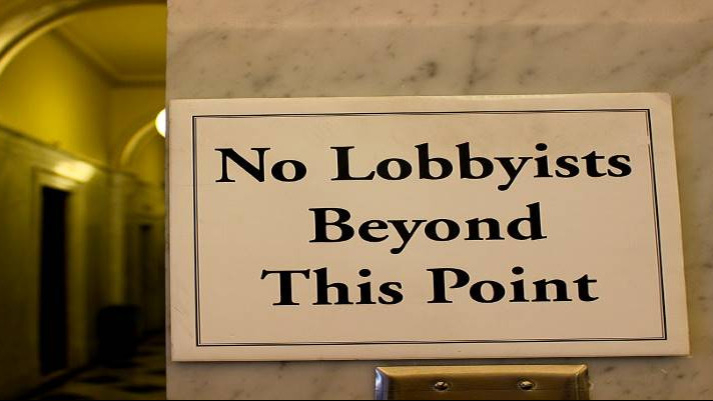In the Shadow: Who is opposing the taxonomy for polluting activities?
Paul Schreiber, Campaigner, paul@reclaimfinance.org
Lucie Pinson, Director, lucie@reclaimfinance.org, +33 6 79 54 37 15

Paul Schreiber, Campaigner, paul@reclaimfinance.org
Lucie Pinson, Director, lucie@reclaimfinance.org, +33 6 79 54 37 15
Reclaim Finance and Change Finance today published a report on the lobbying of financial and economic institutions on an EU taxonomy for polluting activities. The briefing analyzes the 648 responses to the consultation on the renewed EU sustainable finance strategy, to provide a clear picture of who are the opponents to a taxonomy for polluting activities, and how they could manage to push the EU Commission to bury this critical piece of legislation. It calls on the EU Commission to prioritize a taxonomy for polluting activities and on financial institutions to end all anti-climate lobbying.
As the work on the EU sustainable taxonomy is reaching its end, the EU Commission will decide whether its taxonomy for “green” activities will be completed by a taxonomy for “polluting” activities. In partnership with Change Finance, Reclaim Finance analyzed the responses to the consultation on the EU sustainable finance strategy to investigate who opposes or supports this taxonomy. The briefing, entitled In the Shadow: Who is opposing the taxonomy for polluting activities?, shows that out of 648 respondents, 203 explicitly supported a taxonomy for polluting activities, while 169 opposed it. Financial institutions are the larger block opposing a taxonomy for polluting activities, with 74 institutions making up 45% of its opponents. Though the financial sector is divided, many influential global financial institutions and several professional federations or associations lead the charge against a taxonomy for polluting activities.
“Several financial institutions that are members of prestigious climate-initiatives – such as BNP Paribas, Société Générale or HSBC – are lobbying against a taxonomy for polluting activities. They can count on their federations’ support, like the three major French financial federations the AFG, the FBF, and the FFA. Financial institutions that did not explicitly express themselves on this taxonomy let their federation do the dirty work for them, and those that came in support of the taxonomy become strangely misaligned with their representative body”, explains Paul Schreiber, who conducted the research for Reclaim Finance.
The second-biggest opponents to this taxonomy are fossil fuel companies, like RWE, Eni, or Engie, and their interest groups, like Eurogas, FuelsEurope, IOGP, as well as more mainstream economic organizations, like the French MEDEF, the German Industry Association, or the Confederation of Swedish Enterprise. While none of the four arguments used by financial institutions to oppose a taxonomy for polluting activities directly refer to the fossil fuel industry, their opposition will mainly benefit to high-emitting companies.
“The whole high-carbon economy sticks together to block a taxonomy for polluting activities. It‘s no wonder why the second-biggest opponents to this taxonomy are the fossil fuel companies and their interest groups but it’s much more worrying coming from the financial industry. The sustainable finance framework developed by the EU would not be complete without a taxonomy for polluting activities. By opposing it, financial institutions turn a blind eye to the need to phase-out fossil fuels and choose their vested interests over the protection of the climate”, concludes Lucie Pinson, Director of Reclaim Finance and 2020 Goldman Prize Recipient.
The briefing calls on the EU Commission to support and prioritize a taxonomy for polluting activities, on financial players to break away from professional federations, associations or interest groups that engage in anti-climate lobbying, and, on climate initiatives to ban their members from conducting in anti-climate lobbying.
Link to the complete report.
Link to Reuters’ investigation based on the report.
Notes:
1. For comprehensive information on the EU sustainable Taxonomy, see Change Finance’s article and SOMO’s factsheet;
2. A detailed list of opponents and supporters of a taxonomy for polluting activities is available in the report’s annex;
3. Authors choose to replace the term “brown taxonomy” – often used by financial institutions and in the EU consultation documents – with “a taxonomy for polluting activities". The use of “brown” to talk about high-GHG and/or polluting activities that are incompatible with the ecological transition perpetuates a racist vocabulary in finance. This taxonomy is also sometimes called “unsustainable” or “significantly harmful”.
